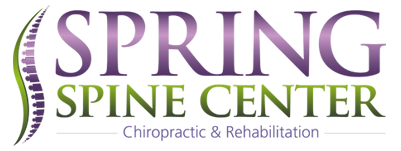What is Frozen Shoulder? Causes, Symptoms, and Chiropractic Treatment
Frozen shoulder, also known as adhesive capsulitis, is a painful condition that limits the movement of your shoulder joint. Over time, the shoulder becomes stiff, making everyday activities difficult. At Spring Spine Center, we see many patients suffering from frozen shoulder and understand how debilitating it can be. Fortunately, chiropractic care offers effective relief and helps restore full function to the shoulder. In this article, we’ll explore what frozen shoulder is, its symptoms, and how chiropractic treatment can help you recover.
What is Frozen Shoulder?
Frozen shoulder occurs when the connective tissues surrounding the shoulder joint become thickened and inflamed. This leads to stiffness, pain, and limited range of motion. The condition develops in three stages:
- Freezing Stage: Shoulder pain gradually increases, and movement becomes restricted.
- Frozen Stage: The pain may lessen, but the stiffness intensifies, limiting shoulder mobility even more.
- Thawing Stage: Range of motion slowly improves as the shoulder “thaws” and returns to normal function, though this process can take months or even years without proper treatment.
While the exact cause of frozen shoulder is not fully understood, it’s believed to occur due to inflammation, injury, or immobility of the shoulder joint.
Common Symptoms of Frozen Shoulder
Frozen shoulder usually develops slowly, but the pain and stiffness can become quite severe. The most common symptoms include:
- Dull, aching pain: Typically felt deep inside the shoulder.
- Stiffness: Difficulty moving the shoulder in all directions.
- Reduced range of motion: Trouble raising your arm or rotating your shoulder.
- Pain that worsens at night: Making it difficult to sleep on the affected side.
If you are experiencing any of these symptoms, it’s important to seek professional care early to prevent the condition from worsening.
Who is at Risk for Frozen Shoulder?
Certain individuals are more prone to developing frozen shoulder. Common risk factors include:
- Age: Most common in people aged 40 to 60.
- Injury or surgery: Immobilization of the shoulder joint after an injury or surgery can lead to frozen shoulder.
- Medical conditions: Individuals with diabetes, thyroid disorders, and heart disease are more likely to develop the condition.
- Sedentary lifestyle: Lack of physical activity can contribute to the development of frozen shoulder.
Women are also more likely to experience frozen shoulder than men. Identifying these risk factors early can help prevent the condition from progressing.
How is Frozen Shoulder Treated?
At Spring Spine Center, we use a holistic and personalized approach to treating frozen shoulder. Chiropractic care focuses on restoring mobility, reducing inflammation, and relieving pain through non-invasive, drug-free treatments. Here are some of the common chiropractic techniques used to treat frozen shoulder:
- Chiropractic Adjustments
Adjustments help improve alignment in the spine and shoulder joint, which can reduce pressure on the surrounding tissues and restore the shoulder’s range of motion. Misalignment can contribute to the development and persistence of frozen shoulder, so correcting it is crucial for recovery.
- Manual Therapy and Myofascial Release
Manual therapy involves hands-on techniques to gently stretch and mobilize the shoulder joint. Myofascial release targets the muscles and soft tissues surrounding the shoulder, reducing stiffness and improving flexibility. These therapies are highly effective in breaking up adhesions and scar tissue that contribute to limited movement.
- Therapeutic Exercises
At Spring Spine Center, our chiropractors will guide you through specific exercises designed to strengthen the shoulder muscles and improve your range of motion. These exercises are tailored to your condition and help speed up recovery by encouraging blood flow and promoting tissue healing.
- Ultrasound Therapy
Ultrasound therapy uses sound waves to promote healing and reduce inflammation in the affected area. The gentle heat generated by the sound waves helps relax the tight muscles and tissues, making it easier to move the shoulder.
- Cold Laser Therapy
Cold laser therapy is another effective treatment for frozen shoulder. It reduces pain and inflammation by stimulating cellular repair and accelerating the body’s natural healing processes.
Benefits of Chiropractic Care for Frozen Shoulder
Chiropractic care offers several benefits for patients suffering from frozen shoulder:
- Non-invasive: Chiropractic treatments are gentle and non-surgical, offering a safe alternative to more invasive treatments like injections or surgery.
- Drug-free: Chiropractic care helps you manage pain without the need for prescription pain medications, which can have unwanted side effects.
- Personalized treatment: Each patient’s condition is unique, so chiropractors develop a customized treatment plan tailored to your specific needs and goals.
- Long-term results: Chiropractic care focuses on addressing the root cause of the problem, not just masking the symptoms. This helps ensure long-term relief and recovery.
When to Seek Chiropractic Care for Frozen Shoulder
If you are experiencing persistent shoulder pain or stiffness, especially if it’s limiting your ability to move your arm, it’s important to seek treatment as soon as possible. Delaying treatment can lead to further loss of mobility and a longer recovery process.
At Spring Spine Center, our experienced chiropractors specialize in treating musculoskeletal conditions like frozen shoulder. We’ll perform a thorough evaluation of your shoulder to determine the extent of the condition and develop a personalized treatment plan to help you recover.
Frozen shoulder can be a painful and frustrating condition, but with the right chiropractic care, you can restore mobility and reduce pain. At Spring Spine Center, we offer effective, non-invasive treatments to help patients with frozen shoulder regain full function and return to their daily activities.
If you or someone you know is suffering from frozen shoulder, don’t wait. Contact Spring Spine Center today to schedule an evaluation and begin your path to recovery.
For more information or to schedule an appointment, please call us at 281-376-1288.

